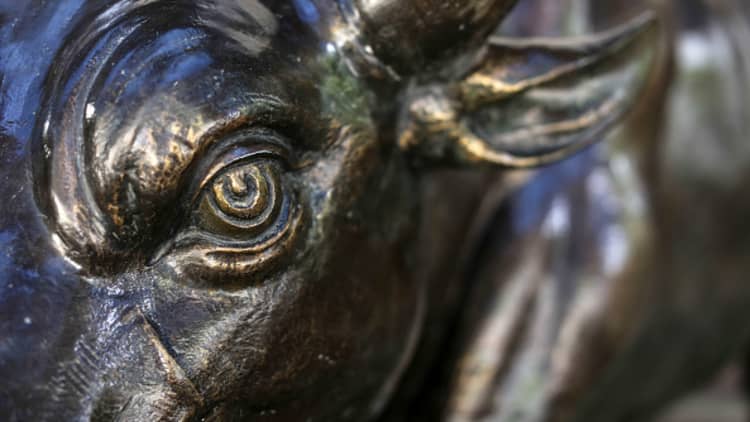
The market still has room to run nine years after the late CNBC anchor Mark Haines called the bottom of the financial crisis-slide in stocks, Jim Cramer said Friday.
"Oh, the bull market is so on," Cramer said on CNBC's "Squawk on the Street." "I just think it's been pronounced dead."
On March 10, 2009, Haines made a bold statement, calling the previous day's closing price the bottom of the stock market's decline. At the time, Wall Street was dealing with the worst financial crisis since the Great Depression, and the market was in free fall.
"I'm going to step out on a limb here ... I think we're at a bottom. I really do," Haines said at the time. When stocks opened after the "Haines bottom," the market began to recover, with the posting a 300 percent gain since then.
Haines did not normally make those kinds of calls, recalled Cramer, host of CNBC's "Mad Money." "We've had people come on and [say,] 'This is it, this is it.' And then it wasn't it."
On Friday, the Labor Department reported the economy added 313,000 jobs in February, crushing expectations and sending the Dow Jones industrial average up more than 270 points Friday morning. The Dow gained 1.46 percent this year, as of Thursday's close, recovering from the early February correction.
The wage number in February's jobs report was lower than expected, with average hourly earnings up 2.6 percent on an annualized basis.
"Everything about this report was astounding," said Cramer.
Cramer said the market had overreacted to the January's wage number, which saw its biggest jump since the end of the Great Recession.


